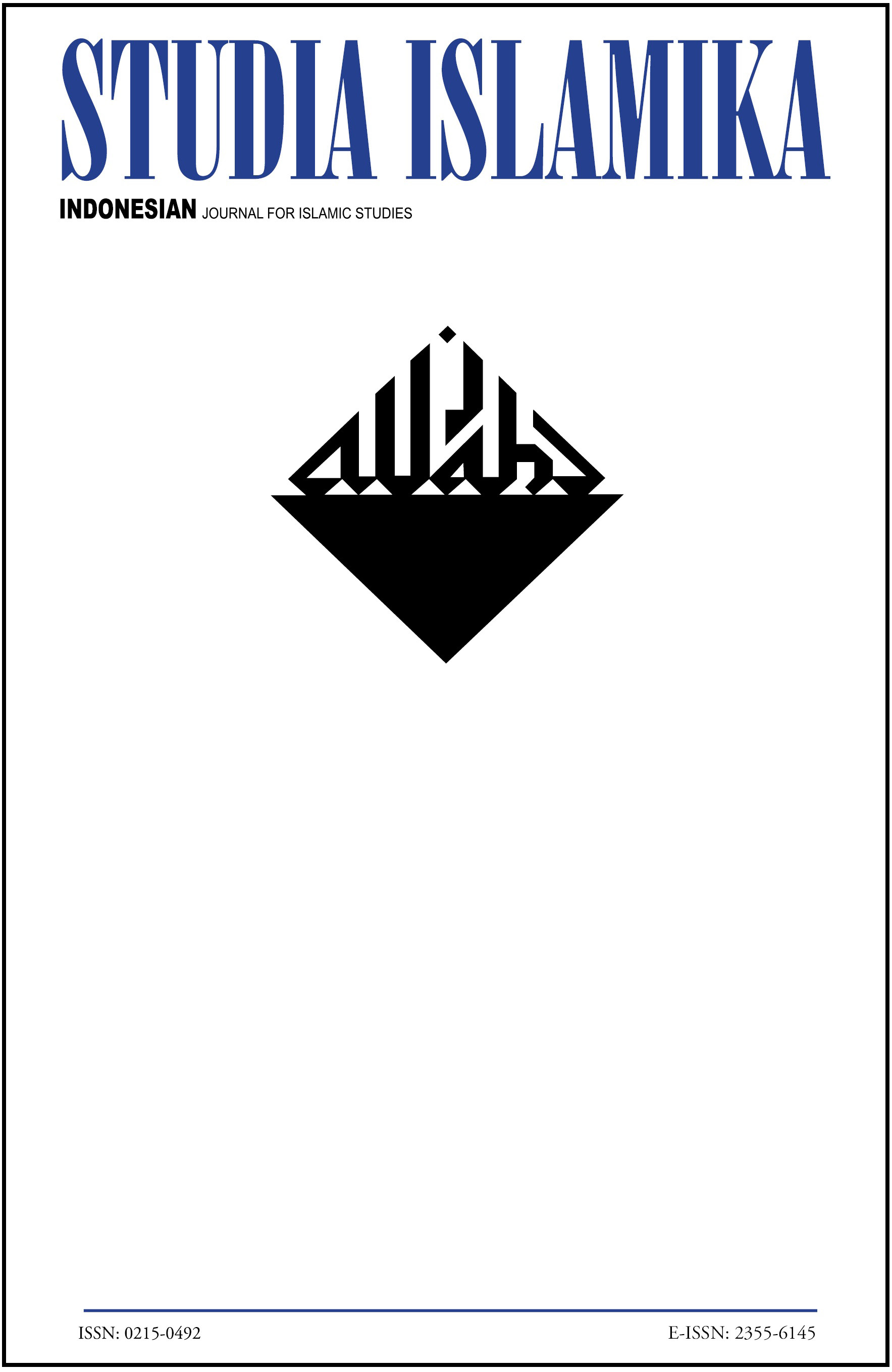Abstract
Pancasila is the five principles of the Indonesian state’s philosophical foundation. Its existence reflects the characteristics of Indonesia as a multicultural nation-state, one which has to absorb and transform all elements of the nation into a strong, permanent foundation, and a dynamic guiding principle. The five principles are viewed as the crystalisation of the core values and ideals of the nation, as idealised by the existing “trilogy ideology”: religious ideologies, nationalist ideologies and socialist ideologies. All of the ideologies had been synthesized in order to find a common ground that realises the common good (al-maṣlaḥah al-‘āmmah) for the life of the nation. The history of the conceptualisation of Pancasila had been a long process featuring the “seeding” phase, “formulation” phase, and “commencement” phase. Each phase involves the participation of various actors and elements. However, in a joint work of the nation, one of the most prominent actors is Soekarno. To understand Pancasila, one needs to understand his life and thoughts.DOI: 10.15408/sdi.v25i2.7502References
Abaza, Mona. 1999. Pendidikan Islam dan Pergeseran Orientasi: Studi Kasus Alumni Al-Azhar. Jakarta: LP3ES.
Adams, Cindy. 1965. Sukarno: An Autobiography as Told to Cindy Adams. New York: The Bobbs-Merrill Company Inc.
———. 2011. Bung Karno Penyambung Lidah Rakyat. Jakarta: Yayasan Bung Karno dan Media Pressindo.
Adamson, Walter L. 1980. Hegemony and Revolution: A Study of Antonio Gramsci’s Political and Cultural Theory. Berkeley: University California Press.
Anshari, Endang Saifuddin. 1983. Piagam Jakarta 22 Juni 1945 dan Sejarah Konsensus Nasional antara Nasionalis Islam dan Nasionalis “Sekuler” tentang Dasar Negara Republik Indonesia. Jakarta: C.V. Rajawali.
Blumberger, John Theodoor Petrus. 1931. De Nationalistische Beweging in Nederlandsch-Indië. Haarlem: H. D. Tjeenk Willink & Zoon N/V.
Hatta, Mohammad. 1979. Memoir Mohammad Hatta. Jakarta: Tintamas.
Im, Yang Tjoe. 2008. Soekarno sebagai Manoesia. Jakarta: Panta Rei.
Ingleson, John. 1979. Road to Exile: The Indonesian Nationalist Movement, 1927-1934. Singapore: Asian Studies Association of Australia.
Kusuma, Ananda B. 2004. Lahirnya Undang-Undang Dasar 1945: Memuat Salinan Dokumen Otentik Badan Oentoek Menyelidiki Oesaha2 Persiapan Kemerdekaan. Badan Penerbit, Fakultas Hukum, Universitas Indonesia.
Kusuma, Erwin. 2008. Pancasila dan Islam: Perdebatan antar Parpol dalam Penyusunan Dasar Negara di Dewan Konstituante. ed. Khairul. Baur Publishing.
Laclau, Ernesto, and Chantal Mouffe. 1985. Hegemony and Socialist Strategy: Towards a Radical and Democratic Politics. London: Verso.
Latif, Yudi. 2008. Indonesian Muslim: Intelligentsia and Power. Singapore: ISEAS.
Legge, John D. 1988. Intellectuals and Nationalism in Indonesia: A Study of the Following Recruited by Sutan Sjahrir in Occupied Jakarta. Itacha: Cornell Modern Indonesia Project.
Niel, Robert van. 1970. The Emergence of the Modern Indonesian Elite. Hague: W. Van Hoeve Publisher Ltd.
Radhakrishnan, Rajagopalan. 1990. “Toward an Effective Intellectual: Foucault or Gramsci?” In Intellectuals: Aesthetics, Politics, Academics, ed. Bruce Robbins. Minneapolis: University of Minnesota Press, 57–99.
Ricklefs, Merle Calvin. 2001. A History of Modern Indonesia Since C.1200. Basingstoke: Palgrave.
Roff, William R. 1970. “Indonesian and Malay Students in Cairo in the 1920’s.” Indonesia (9): 73–87.
Simbolon, Parakitri Tahi. 1995. Menjadi Indonesia: Akar-Akar Kebangsaan Indonesia. Jakarta: Kompas.
Soekarno. 1958. 1–4 Pantja-Sila sebagai Dasar Negara. Jakarta: Kementerian Penerangan RI.
———. 1961. Toward Freedom and the Dignity of Man: A Collection of Five Speeches by Presiden Soekarno of Republic Indonesia. Jakarta: Department of Foreign Affairs.
———. 1964. 1 Di Bawah Bendera Revolusi: Jilid 1. Jakarta: Panitia Penerbit Di Bawah Bendera Revolusi.
Thomas, Robert Murray. 1973. A Chronicle of Indonesian Higher Education: The First Half Century, 1920-1970. Singapore: Chopmen Enterprises.
Tito, Muhammad. 1979. Kumpulan Kata-Kata Pilihan Bung Karno. Blitar.
Authors who publish with this journal agree to the following terms:
- Authors retain copyright and grant the journal right of first publication with the work simultaneously licensed under a Creative Commons Attribution License that allows others to share the work with an acknowledgement of the work's authorship and initial publication in this journal.
- Authors are able to enter into separate, additional contractual arrangements for the non-exclusive distribution of the journal's published version of the work (e.g., post it to an institutional repository or publish it in a book), with an acknowledgement of its initial publication in this journal.
- Authors are permitted and encouraged to post their work online (e.g., in institutional repositories or on their website) prior to and during the submission process, as it can lead to productive exchanges, as well as earlier and greater citation of published work.

